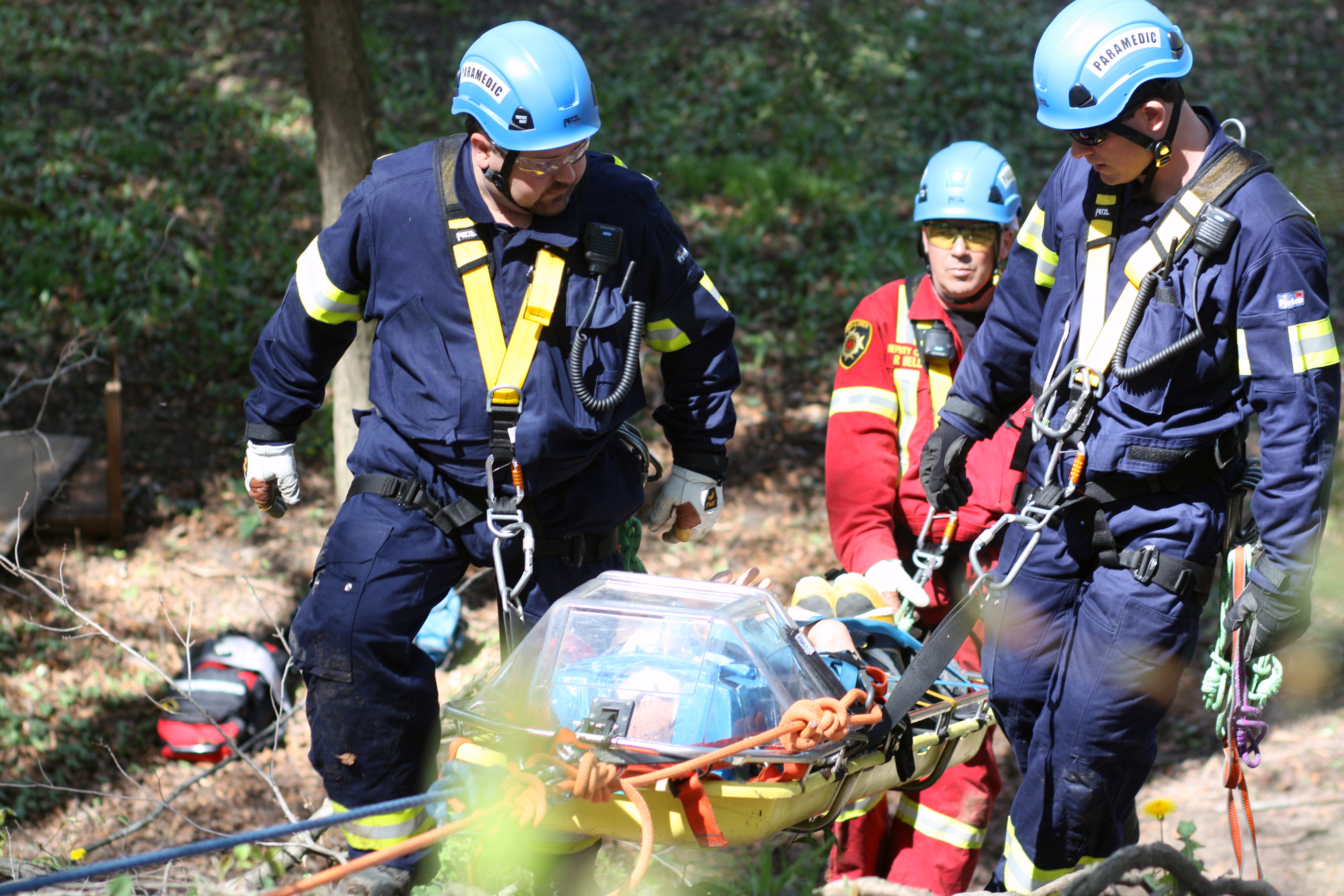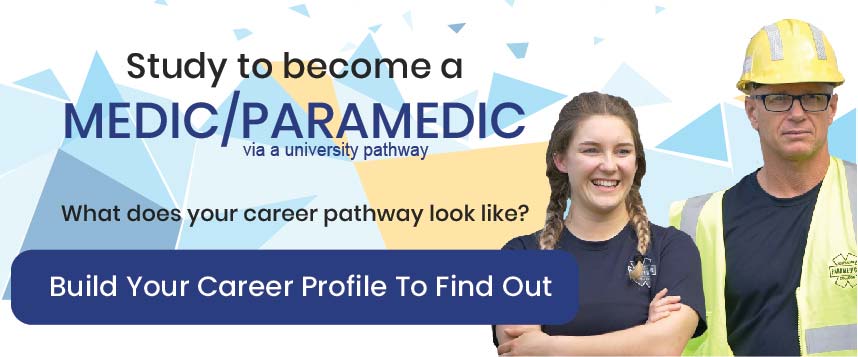
Thanks to NSW Ambulance for the photos of their fearless paramedics going through their training
Not for the faint hearted: Search and Rescue Paramedic
Becoming a Search and Rescue Paramedic could be one of the most rewarding and exciting careers you could have. Imagine the excitement, the adrenaline and the thrill of saving someone’s life in a remote location.
As a Search and Rescue Paramedic, there’s unlimited opportunities to grow your career, where your unique medical skills, combined with survival skills are called upon to save the day at any given moment.
Paramedic Career Development Plan – do you want one?
Find out what it takes to become a Search and Rescue Paramedic. We show you exactly how to do it, which course you need to do (you need a degree to work with an ambulance service), what’s involved, how long it takes, which study pathways you can take and where the jobs are (Australia and overseas).
When you think of a Search and Rescue Paramedic, chances are you’ll visualise images like the ones below, where Paramedics and support crews are abseiling of a vertical cliff, or maybe helicopters dipping low over the ocean, or the Flying Doctors landing a twin engine Piper on a sandy runway in the bush.
While these are awesome careers within an Ambulance Service such as ASNSW, there are many others industries that would also benefit from the skills of a Search and Rescue Paramedic. (Think SES, volunteering organisations, Surf Life Saving clubs, mining companies and even the military.)

A Paramedic with exceptional skills
To become qualified as a Search and Rescue Paramedic or Special Operations Paramedic, you of course need to be a registered Paramedic (AHPRA) with a wealth of clinical experience behind you.
As a registered Paramedic, there are the standard clinical skill sets that come naturally – but with a move into Search and Rescue, here’s a few key skills you’ll need to learn;
- Road crash rescue
- Vertical rescue
- Confined space and trench rescue
- Navigation skills
- Advanced four-wheeled driving
- Urban search and rescue protocols
- Perform a variety of chemical, biological and radiological procedures.
A typical job advertisement for a Rescue Paramedic
This job was advertised by an Australian business in the maritime, mining & remote medicine industries. It’ll give you an idea of exactly the type of credentials employers are looking for.
This advertiser was seeking expressions of interest from experienced and qualified Rescue Paramedics (mining) who are interested in a DIDO (drive in – drive out) role within the Queensland Bowen Basin Region (Queensland) or FIFO out of Brisbane.
Requirements;
- HLT51020- Diploma of Emergency Health Care or Bachelor Paramedical Science
- Current Advance Care Life Support Cert
- AREMT/PA registratio
- Cert III Mines Rescue
- Cert IV Training and Assessment
- Coal Board Medical/Rescue CBM
- Standard 11 Mining Induction (above ground)
- Drug and Alcohol Screening Qualification
- Current Manual Drivers Licence
- Operate Light Vehicle RIIVEH201D
- Operate and Maintain a 4WD RIIVEH305D
- Immunisations for Tetanus and Hepatitis A & B must be up to date (evidence will be required)
As you can see, there is a long list of requirements and qualifications needed as well as practical experience in the field as a paramedic.
Search and Rescue Paramedic essential reading
Here are links to highly recommended articles related to the role of a Search and Rescue Paramedic.
- Mining Paramedic jobs: MSS Strategic Medical & Rescue
- Do you want to become a Rescue Paramedic?
- Rescue Paramedic Jobs
- What is an Emergency Services Officer (ESO) and to become one?
